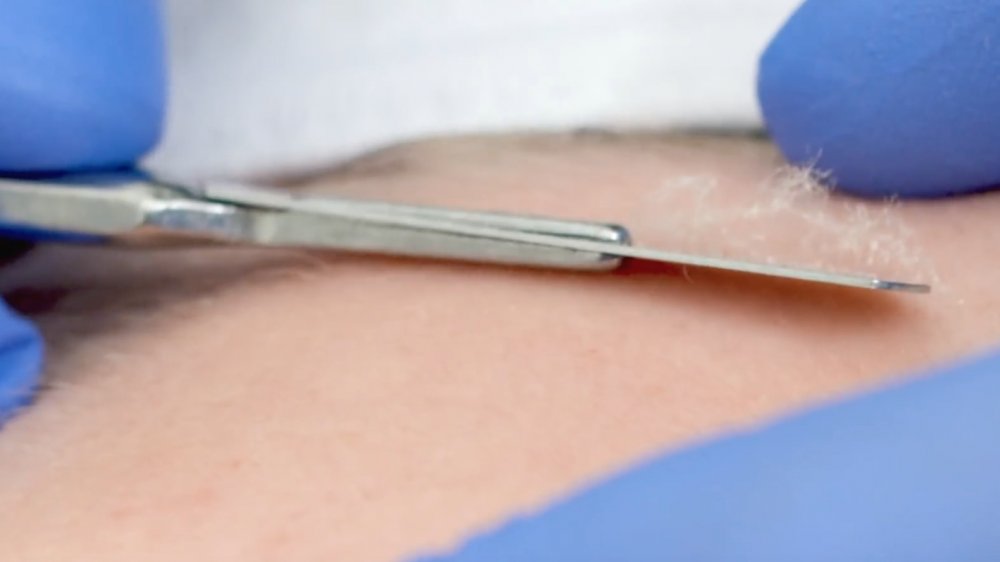The Truth About Dermaplaning
If the thought of taking a surgical scalpel to your face to skim off dead skin and shave off your peach fuzz sounds absolutely terrifying to you, you're not alone. "Dermaplaning is a physical form of exfoliation similar in theory to microdermabrasion," cosmetic surgeon Jonquille Chantrey tells Refinery29. "[It] triggers the cell regeneration process... leaving your skin with a smooth appearance and a radiant glow. Along with the removal of fine hairs, it results in healthier skin that feels silkier."
Aesthetics Journal says the procedure, which can take up to 30 minutes, was first introduced in the 1970s in The Journal of Dermatological Surgery and Oncology. It wasn't positioned as a beauty treatment, but as an acne solution. Dermaplaning is meant to have little to no side effects, and should leave you looking cleaner and healthier. Your hair should not grow back darker or thicker, nor should it be painful. You might come away from a treatment feeling a bit sensitive and sore, but if you've come away with a nick, cut, or more, the blade has gone beyond the skin layer it should be shaving... and that means the procedure hasn't been done properly.
Dermaplaning isn't for everyone
As with just about everything in science, medicine, and plastic surgery, dermaplaning is not for everyone. Dermatologist and British Skin Foundation spokesman Dr. Anjali Mahto indicates that the treatment may not be right for women who have excessive facial hair, suffer from acne, or pigmentation problems.
New York plastic surgeon Melissa Doft tells Cosmopolitan that those with skin that is sensitive and reacts to just about everything from food to sunlight may also want to take a hard pass on dermaplaning because the treatment could just end up irritating your skin, making whatever problem you had before even worse. Likewise, Dr. Chantrey recommends that those with rosacea, eczema, or psoriasis should also avoid dermaplaning.
Doctors also strongly recommend that you see a dermatologist or plastic surgeon for your dermaplaning needs, because — as with everything that involves a sharp knife near any living, breathing thing — you shouldn't try this at home.

